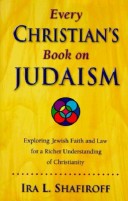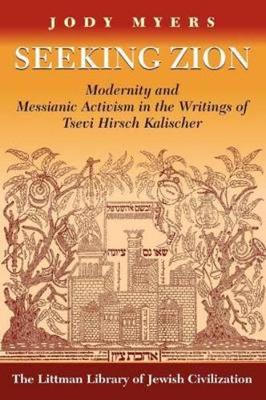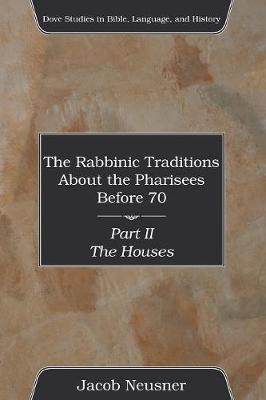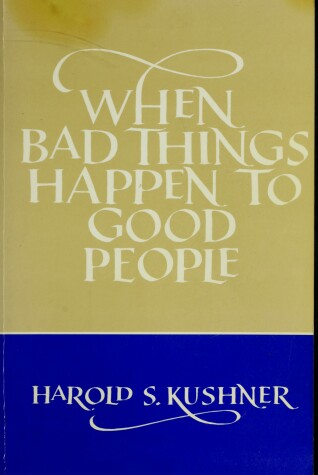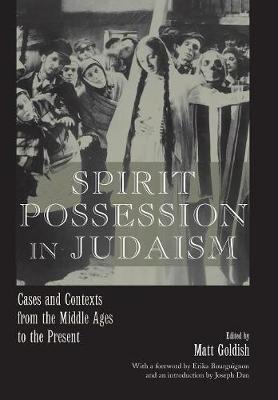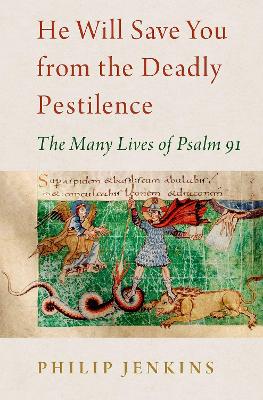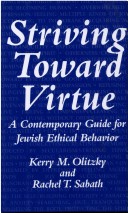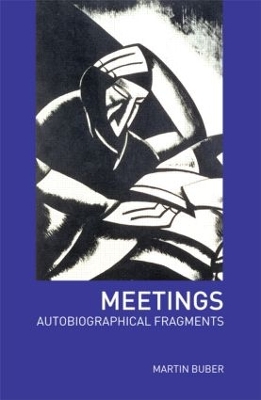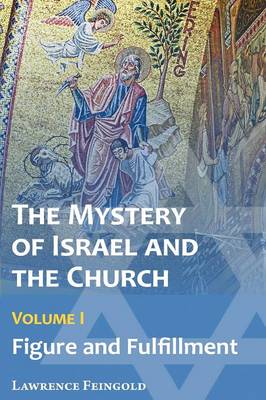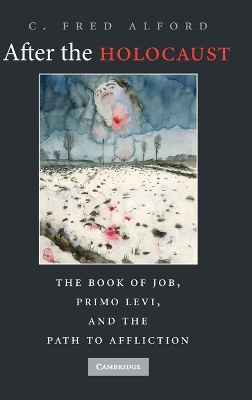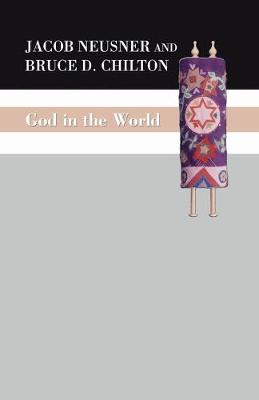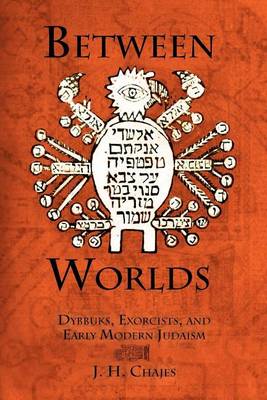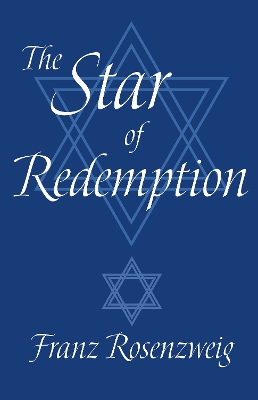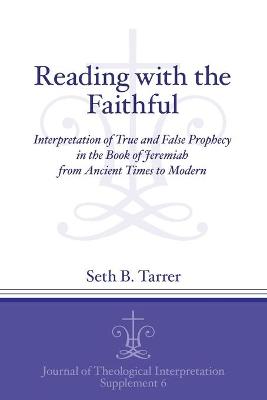Tsevi Hirsch Kalischer (1795-1874) was one of the first Orthodox rabbis to advocate direct political action in order to radically transform Jewish life. Kalischer lived in a time when Jewish tradition was increasingly challenged by rational thought and social integration. Applying his knowledge of rabbinic literature to the unusual historical events unfolding around him, he became convinced that behind the rise of individual Jews to great power was a divine plan to prepare the way for messianic...
The Rabbinic Traditions About the Pharisees Before 70, Part II (Dove Studies in Bible, Language, and History)
by Professor of Religion Jacob Neusner
Spirit Possession in Judaism (Raphael Patai Series in Jewish Folklore and Anthropology)
This extraordinary collection of essays is the first to approach the phenomenon of spirit possession among Jews from a multidisciplinary perspective. What beliefs have Jews held about spirit possession? Have Jewish people believed themselves to be possessed by spirits? If so, what sorts of spirits were they? Have Jews' conceptions of possession been the same as those of their Christian and Muslim neighbors? These are some of the questions addressed in these thirteen essays, which together explor...
Resurrection and the Restoration of Israel
by Professor Jon D Levenson
The nation - particularly in Exodus and Numbers - is not an abstract concept but rather a grand character whose history is fleshed out with remarkable literary power. In her innovative exploration of national imagination in the Bible, Pardes highlights the textual manifestations of the metaphor, the many anthropomorphisms by which a collective character named "Israel" springs to life. She explores the representation of communal motives, hidden desires, collective anxieties, the drama and suspens...
The Universal Horizon of Biblical Particularism
by Jon Douglas Levenson
Jews and Christians alike have made Psalm 91 one of the most commonly used and cited parts of the Bible. For over two thousand years, the psalm has played a pivotal role in discussions of theology and politics, of medicine and mysticism. In He Will Save You from the Deadly Pestilence, acclaimed religion scholar Philip Jenkins illustrates how the evolving uses of Psalm 91 map developing ideas about religion and the supernatural. Depending on the era, Psalm 91 is protective; it is triumphalist; it...
Hidden Truths Hebraic Scrolls Tanak Vol III of III Large Font Psalms to II Chronicles
by Rabbi Simon Altaf
Striving toward Virtue
by Kerry M. Olitzky and 1968- Rachel T Sabath
To find more information about Rowman and Littlefield titles, please visit www.rowmanlittlefield.com.
Meetings sets forth the life of one of the twentieth-century's greatest spiritual philosophers in his own words. A glittering series of reflections and narratives, it seeks not to describe his life in its full entirety, but rather to convey some of his defining moments of uncertainty, revelation and meaning. Recalling the question on the infinity of space and time which nearly drove Buber to suicide at the age of fourteen, his adolescent 'seduction' by Nietzsche's work, his hero-worship of Ferdi...
The Holocaust marks a decisive moment in modern suffering in which it becomes almost impossible to find meaning or redemption in the experience. In this study, C. Fred Alford offers a new and thoughtful examination of the experience of suffering. Moving from the Book of Job, an account of meaningful suffering in a God-drenched world, to the work of Primo Levi, who attempted to find meaning in the Holocaust through absolute clarity of insight, he concludes that neither strategy works well in toda...
God in the World
by Professor of Religion Jacob Neusner and Bruce D. Chilton
There Is No Place Without You (Jewish Poetry Project, #27)
by Maya Bernstein
The Star of Redemption (The Littman Library of Jewish Civilization)
by Franz Rosenzweig
The Star of Redemption is widely recognized as a key document of modern existential thought and a significant contribution to Jewish theology in the twentieth century. An affirmation of what Rosenzweig called "the new thinking," the work ensconces common sense in the place of abstract, conceptual philosophizing and posits the validity of the concrete, individual human being over that of "humanity" in general. Fusing philosophy and theology, it assigns both Judaism and Christianity distinct but e...
Reading with the Faithful (Journal of Theological Interpretation Supplements, #6)
by Seth B. Tarrer
If, therefore, someone is a prophet, he no doubt prophesies, but if someone prophesies he is not necessarily a prophet.-Origen Origen, writing sometime in the mid-third century on the Gospel of John, has charted a course for the subsequent history of interpretation of true and false prophecy. Although Tarrer's study is concerned primarily with various readings of Jeremiah's construal of the problem, the ambiguity inherent in Origen's statement is glaring nonetheless. This monograph is a st...

